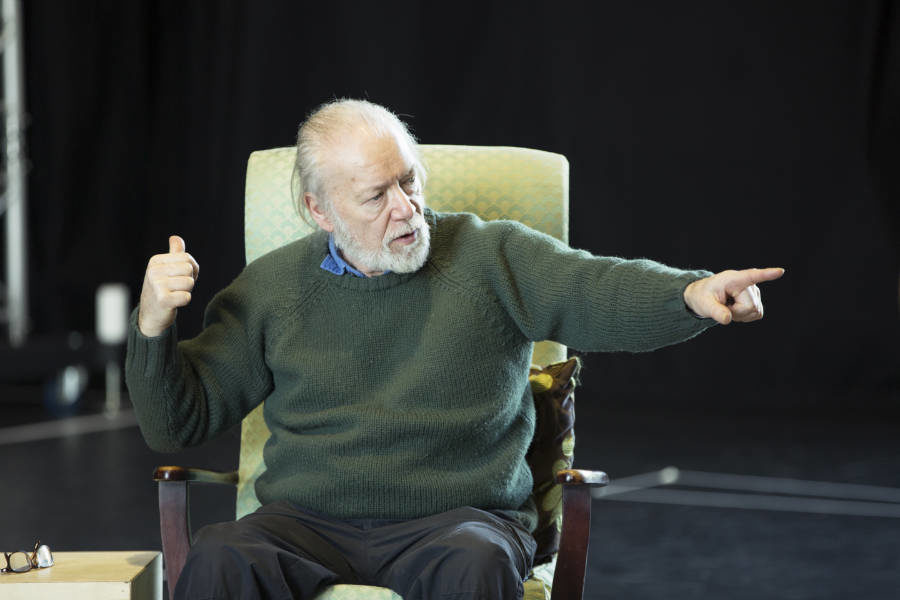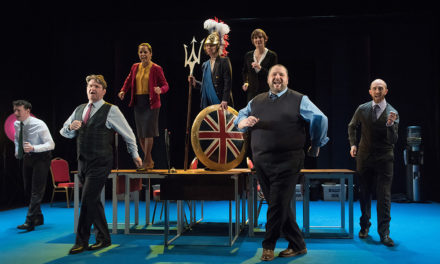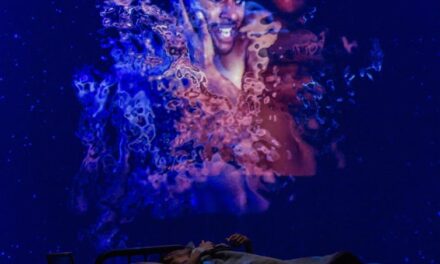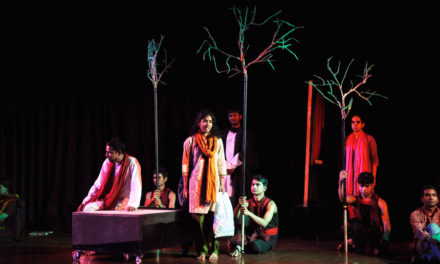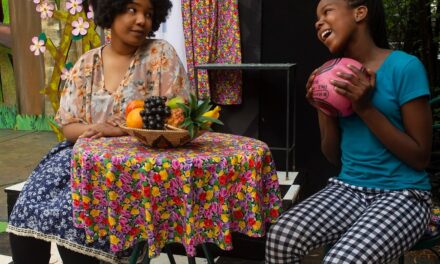The universality of Florian Zeller’s undiminished modern masterpiece The Father has ceased to lose its translatability to a wider global audience. There aren’t many plays in the contemporary repertoire which have gauged the same excitement and fascination by audiences, scholars and theatre-makers alike. Here in September, the premiere of a recent Dutch translation by Jolijn Tevel reached the Stadsschouwburg in Amsterdam’s Leidseplein[i]. This month, Wales’ flagship Welsh language theatre company Theatr Genedlaethol Cymru will be the first company in Wales to present the inaugural Welsh translation by Geraint Løvgreen.
The Play.
The Father, premiered in Paris in 2015 (entitled Le Père), is surely one of the most performed plays in the world at this very moment. One may not quite gauge what to expect from a play labeled as a “tragic farce” [ii], echoing that French tradition of plays from Ionesco to Genet, who bend the rules of uncertainty to the forms of action. Indeed, this is a play where scenography becomes just as much a part of the action as the narrative. To describe that here would spoil the tastes that the play has to offer the palate, therefore, it’s safer to settle that the constituents of the “well-made play” are less at stake here than one might begin to imagine. What should be said though (in a similar vain to Simon Stephens’ adaptation of The Curious Incident Of The Dog In The Night Time [iii]), is that the named condition isn’t mentioned once throughout the text; indicating that a play about a medical condition is not always the gemstone upon the pedestal.
Christopher Hampton’s English translation made a tremendously successful leap from the Theatre Royal Bath’s Ustinov Studio, to London’s Tricycle Theatre, and then to the West End. Kenneth Cranham’s performance as André, the father, garnered him the Olivier for Best Actor [iv]. An audience gains an intimate insight into the distorted progression of André, in his latest stages of Alzheimer’s disease. With our growing population and prolonged lifespans, we can all fear the growing presence of this protruding condition. No one needs me to stipulate anywhere in this article the importance, relevance, and urgency of this play; not just as a signification to a medical phenomenon plaguing a larger population with each year, but as a sign of our own personal regrets in the relationships flawed and celebrated within the ontological condition. In short, The Father is indeed a play about memory, but arguably, it’s a play about relations and regret.
Theatr Genedlathol Cymru.
Given the mass of powerful themes, it’s to be expected that Wales’ National theatre for the Welsh language would be the idealistic ship on which to sail its weighted cargo across the Welsh soil. Løvgreen’s translation won the Medal for Best Welsh Translation at the annual National Eisteddfod in 2016. It was inevitable that eventually, this play would reach the rest of the nation in a production capacity. Rehearsals have begun in Carmarthenshire for the three-week tour that commences at Bangor’s Pontio in a few weeks time, under the direction of the company’s Artistic Director, Arwel Gruffydd.
If National Theatres have taught us anything, it’s that it is within their constitutional duty to deliver the most potent themes of a contemporary time to the absolute present of an audience. Theatr Gen’s themes have never been short of tackling those of an urgent substance, from the construction of a nuclear power station on the island of Anglesey[v], to an operatic adaptation of a classical Welsh text[vi] and with Zeller’s captivating text on the fragility of pulverised by fading memories, Theatr Gen will surely thrive. Their forthcoming production Nyrsys will be a celebration of the work delivered by nurses of the National Health Service in its 70-year history[vii]. In short, Theatr Gen is not in need of potent themes to deliver to a Welsh audience for generations to come. What’s more significant, is that even they recognize that the accessibility of the Welsh language need not diverge from attending their productions. Untranslatability should not deter from the universality of theatre, and this is a prime example of that.
Sibrwd & Accessibility.
As such, Sibrwd (aptly translated to whisper in English) has been utilized for most of Theatr Gen’s productions for the past five years. This app eliminates the need for craning necks 40ft above a proscenium arch in order to read the (often) unsimplified surtitles. Instead, a Bluetooth connection links to a personal mobile device, and during the performance, listeners can access both an audio and textual description of the play’s key events[viii].
Having continuously affiliated with Sibrwd myself, even as a Welsh-speaker, I cannot stress the dynamism, importance, and simplification of such a device to the Welsh-theatre scene. Wales is a nation of 3 million people. A sixth of which are Welsh-speaking. How many of those attend the theatre often? It cannot be distinguished with absolute precision. What is clear though, is that an audience must be gained from outside this boundary. The Father has not been seen in an English language version in Wales thus far. But this should not revert from how an audience will be able to access the play. With Sibrwd progressing as an art form in its own entity, it will only progress in the way it reverts the narratives of powerful Welsh drama into a viable, transmittable language that everyone will be able to enjoy without the expensive and laborious use of surtitling.
What we should be witnessing is a detachment from the notion that loss of translation in language is something inescapable from the regular audience-goer. In other words, there is no reason that any non-Welsh speaker can’t be fully present at a performance of Y Tad and set themselves on the same emotional journey.
Conclusion & Tour Information.
There must be something to say on the notion of cultural translation, given that I am writing this article on a Welsh-language production, in English, from an Amsterdam setting. If this unification has managed to composite itself together, then something may be said regarding the excitement to speak of an international production.
Whether you speak English or Welsh, the universality of Zeller’s text still delivers. When it comes down to it, the catastrophic consequences of such a present mental condition cares little for the language in which it is evoked, for the tragedy of universal suffering can be transmitted in any language. Language isn’t needed in order to witness the tragic downward-spiral of an individual grappling with the present and the departure of one of our most precious components: memory. Above all else, one character’s attitude in the play signifies the array of perceptions that this modernist condition is gauging from a society still grappling to fully comprehend what it all means.
Geraint Løvgreen’s translation of Florian Zeller’s undoubted masterpiece Y Tad, directed by Arwel Gruffydd, will be touring across Wales from February 21 to March 16, 2018. The tour schedule can be found here. Tickets are available at each venue individually.
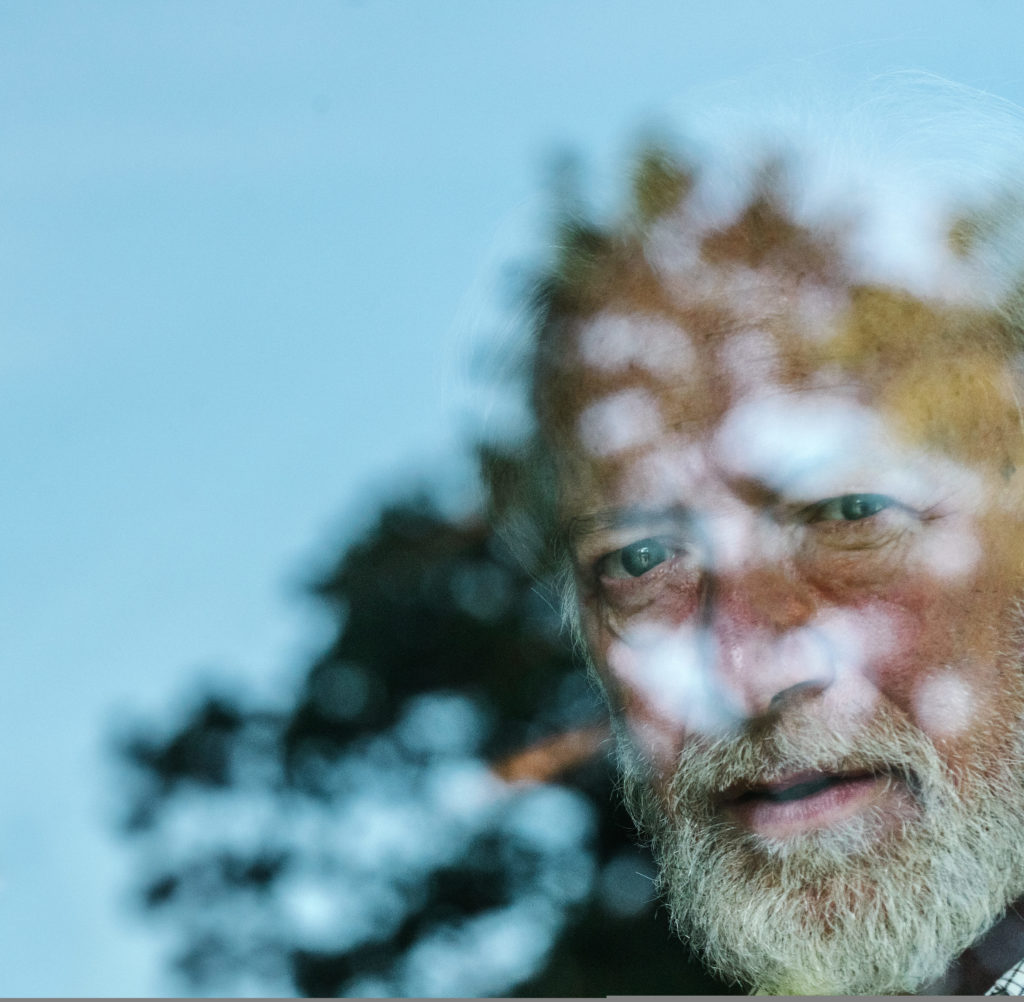
Dyfan Roberts in Y Tad. Courtesy of Theatr Genedlaethol Cymru.
NOTES.
[i] De Vader, Dir. Gijs de Lange. SENF, (Netherlands, 2017).
[ii] Zeller, Floria (2015) The Father, Faber & Faber ed.
[iii] The Curious Incident Of The Dog In The Night-Time based on the book by Mark Haddon, adapted by Simon Stephens. Dir. Marianne Elliot, (National Theatre, 2012).
[iv] The Father, trans. Christopher Hampton. Dir. James MacDonald (Theatre Royal Bath, 2014).
[v] Hollti, by Manon Wyn Williams. Dir. Sarah Bickerton. (Theatr Genedlaethol Cymru, August-October 2017).
[vi] Y Tŵr, based on the play by Saunders Lewis. Dir. Michael McCarthy. Theatr Gen & Music Theatre Wales, May 2017)
[vii] Nyrsys, by Bethan Marlow and Rhys Taylor, Dir. Sara Lloyd, premiering in 2018.
[viii] For more information
This post was written by the author in their personal capacity.The opinions expressed in this article are the author’s own and do not reflect the view of The Theatre Times, their staff or collaborators.
This post was written by Christopher Harris.
The views expressed here belong to the author and do not necessarily reflect our views and opinions.

